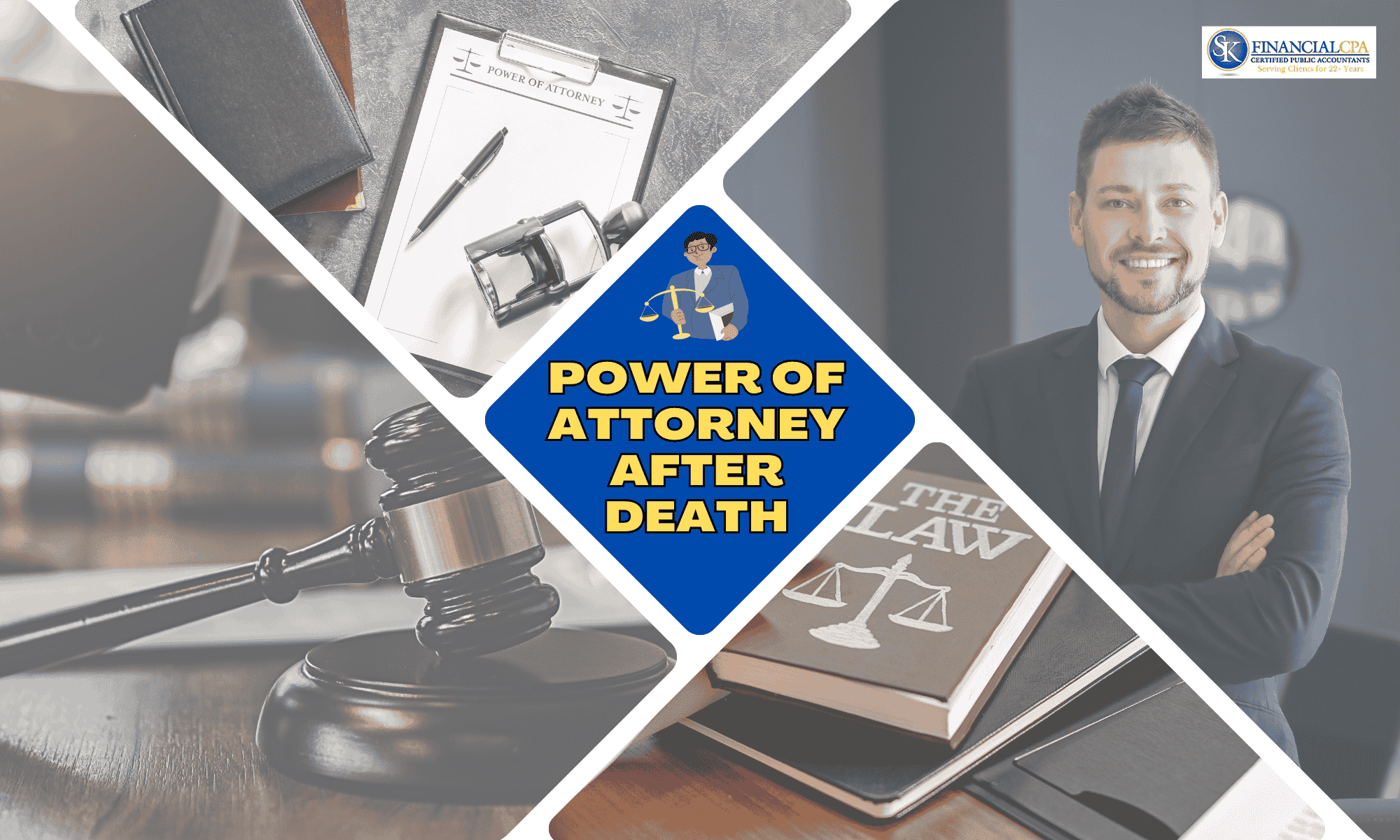
Power of Attorney After Death: A few things you should know
A Power of Attorney (POA) lets you appoint someone to manage your affairs while you are alive. But once you pass away, that authority ends immediately. At that point, control of your estate passes to an executor (if there’s a will) or a court-appointed administrator (if there’s no will).
In this blog we’ll explain how Power of Attorney works, why it stops at death, what happens when there’s no will, the different types of Power of Attorney, and how it fits into estate planning.
Power of Attorney After Death
A Power of Attorney (POA) only works while the person who created it is alive. Once they pass away, the POA ends immediately. At that point, the estate is handled by an executor (if there’s a will) or a court-appointed administrator.
For example, if someone used a POA to pay bills for an elderly parent, that authority stops the moment the parent dies. From then on, only the executor named in the will can manage bank accounts or property.
Read more about tax preparation services
What Is Power of Attorney?
A Power of Attorney is a legal document that gives someone (the “agent” or “attorney-in-fact”) the authority to act on behalf of another person (the “principal”). This can include managing money, signing contracts, or making healthcare decisions.
Example: If you’re traveling overseas and need someone to sell your car or sign a contract, a Power of Attorney works allows your chosen agent to act for you.
Check retirement savings contribution credit.
Who has power of Attorney after death if there is no will
A Power of Attorney becomes void immediately at death, whether there is a will or not. If the person dies without a will, the court will appoint an administrator to distribute assets under state intestacy laws.
The former Power of Attorney agent has no authority unless the court also names them as administrator.
Who has power of Attorney after death if there is a will
Personal Representative(s) or Executor(s) named in the decedent’s Will would be the responsible person who have the authority to act on behalf of the estate. However, In most cases, the Representative will need to be legally appointed to obtain this authority. The legal process of appointing an Personal Representative is known as probate.
Explore: Affordable CPA services Florida, US
Types of Power of Attorney
Not all POAs are the same. Each type is designed for different situations, from broad financial authority to medical decision-making.
There are several kinds of Power of Attorney (POA), each serving a different purpose. Choosing the right one depends on your needs and future plans.
Durable vs. Nondurable POA
A durable POA stays valid if the person becomes incapacitated, like after a stroke. A nondurable one ends right away and is less useful for planning.
Springing POA
This only activates after a condition, often a doctor declaring incapacity. For example a soldier’s spouse can act only if the soldier is injured.
General POA
Gives wide authority for finances, property, and business. Handy if you’re abroad and need someone to manage bills and accounts.
Financial POA
Covers only money matters like taxes or investments. An elderly parent naming a child to pay bills and file returns.
Medical POA
Lets an agent make healthcare decisions. When choosing treatments if the patient is unconscious after surgery.
Is a Power of Attorney valid after a death?
No. A Power of Attorney ends the moment the person who created it dies. It only allows someone to act on their behalf while they are alive. For example, if a son uses POA to pay his mother’s bills, that authority stops immediately after her death. From then on, only an executor or court-appointed administrator can manage the estate.
Abuse of Power of Attorney After Death
A Power of Attorney ends the moment the principal dies. Any agent who keeps using it afterward is acting illegally. Common abuses include trying to withdraw money from bank accounts, transferring property, or making medical decisions after the person’s passing.
For example, if an adult child continues writing checks from a deceased parent’s account using an old POA, that action has no legal authority and may be considered fraud.
At this stage, only the executor named in the will or a court-appointed administrator has the right to handle the estate.
Cessation of Power of Attorney Upon Death
Once the principal dies, the POA ends immediately. The agent cannot use it for banking, property, or medical decisions. Instead:
-
If there is a will, the named executor takes over.
-
If there is no will, a court appoints an administrator.
This is why a POA should be paired with other estate planning documents like wills and trusts.
Conclusion
A Power of Attorney is useful during a person’s lifetime, but it has no effect after death. To ensure a smooth transfer of authority, every POA should be supported with a clear estate plan including a will, trust, or healthcare directive. By planning ahead, you protect your wishes and make things easier for your loved ones.
FAQs
Can a Power of Attorney be used after death?
No. It ends immediately when the principal passes away.
Who manages the estate if there’s no will?
A court appoints an administrator under state intestacy laws.
What is the difference between a Durable and General POA?
A Durable POA stays valid if the principal becomes incapacitated; a General POA does not.
Does a Healthcare Power of Attorney work after death?
No. It only applies while the principal is alive and unable to make medical decisions.
Can a Power of Attorney be changed or revoked?
Yes. As long as the principal is alive and competent, they can revoke or modify it.
Who should I choose as my POA agent?
Someone you trust completely often a close family member, spouse, or reliable friend.
Follow SKFinancial on Facebook / Twitter / Linkedin / Youtube for updates.














